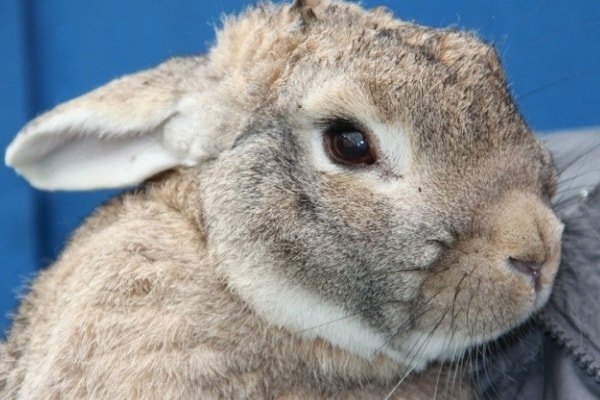
Digestive Problems in Rabbits
Gastrointestinal symptoms are extremely common reasons for the presentation of rabbits to a veterinary clinic. True gastrointestinal diseases are common and potentially very serious, but gastrointestinal symptoms also often occur for non-pathological reasons or secondary to non-gastrointestinal disease processes, including any cause of pain or stress (concurrent illness, poor handling, loss of a bonded companion, rehoming….). The diet plays an important role in causing digestive problems.
Anorexia
Not eating (anorexia) is a very common but non-specific presentation in rabbits. Any stressful situation, painful condition or gastrointestinal tract problem can lead to anorexia. Whatever the inciting cause, anorexia inevitably leads to decreased gastrointestinal motility and consequently to a further reduction in appetite. A further complication of anorexia is the fact that rabbits are very prone to developing hepatic lipidosis (fat liver syndrome), often within 48-72 hours after the rabbit stopped eating. One of the principal signs of hepatic lipidosis is anorexia so that by the time the rabbit is presented to the veterinarian the initiating factors of the anorexia may no longer be present or, even if they can be identified and treated, anorexia may continue purely as a consequence of the hepatic lipidosis. It is therefore important to be proactive in searching for medical advice immediately instead of waiting too long before you bring your rabbit to the veterinary clinic.
The cause of anorexia can be multiple: problems in the mouth, more specific tooth problems, gastric stasis caused by for example hairballs, gastric pain caused by acute distension of the stomach, obstructions…
Diarrhea
Rabbit owners commonly present their pets with the complaint of diarrhea but in a large proportion of the cases, the true problem is caecotroph accumulation around the anus (‘clagged vent’), which has a very different range of aetiologies. Caecotrophs are soft, mucus-covered caecal pellets expelled three to eight hours after eating. They are eaten directly from the anus (a process known as caecotrophy) and rich in nutrients for reingestion. Diarrhea is a common cause of anorexia in a rabbit. Common causes of true diarrhea are coccidiosis, Salmonella, E coli or viruses as Rotavirus or Coronaviruses.
Diet
As said diet plays an important role in digestive problems. Fiber is critical to the rabbit for gastrointestinal health (and dental health, providing the essential wear to keep the teeth at the correct level). Fibre has an important effect on appetite and caecotrophy. A permanent source of indigestible fiber in the form of hay or fresh grass-fed ad libitum will ensure adequate fiber level, as long as it is actually consumed by the rabbit.
Feeding the correct diet to rabbits is fundamental in maintaining health, particularly of the gastrointestinal (and dental) system. The recommendations are:
– the bulk of the diet should consist of grass or good quality hay and this should be available at all times.
– Green leafy foods are also important and should be fed daily (wash them before feeding)
– Commercial concentrate rabbit diets are not essential if ad libitum hay, grass, and greens are available. They are quite often fed for convenience. A good general rule is to feed a maximum of 25 g of high-fiber pellets per kg body weight per day.
– Fruit should be regarded as a treat item and fed in limited quantities only, as it is high in simple sugars and may lead to gastrointestinal problems. High-fat or high-carbohydrate/starchy items should be avoided completely. They include commercial ‘treats’, beans, corn, bread, breakfast cereal, nuts, chocolate….
– Sudden changes in diet must be avoided. Any change should be made gradually over several days.
– Frosted or moudly food and lawnmower clippings should not be fed
– Dietary supplements consisting of vitamins and minerals are not generally necessary if the correct diet is fed.
– Last but not least: Fresh drinking water must be available at all times.
To book an appointment for a check-up, please call 04-3408601 or send an email to frontdesk@abvc.ae
Written by Dr. Metje Zegers, ABVC Senior Veterinarian
